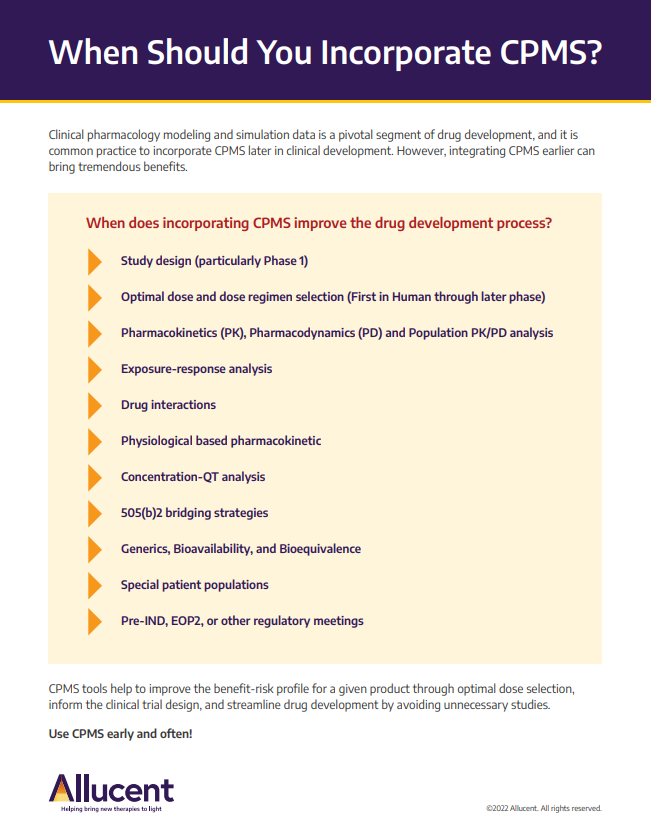Clinical pharmacology modeling and simulation (CPMS) data is a pivotal segment of drug development, and it is common practice to incorporate CPMS later in clinical development. However, integrating CPMS earlier can bring tremendous benefits.
What role do CPMS experts play on the drug development journey?
Clinical pharmacology covers all aspects of interaction between humans and drugs, focusing on safe and effective usage. The clinical pharmacology team oversees the entire clinical development program with the aim of increasing the success rate and efficiency of the program to arrive at the right dosing regimen for the patient.
Clinical pharmacology helps overcome major scientific challenges of drug development by predicting the safety, efficacy, and drug response variability.
When is the best time to engage CPMS experts?
Aspects of efficacy, safety, and drug response variability can be appropriately understood using clinical pharmacology methods and tools before initiating and during the clinical development program, at both early and late stages. Appropriate application of the principles of pharmacokinetics (PK) and pharmacodynamics (PD), in conjunction with model-informed drug development (MIDD), can significantly reduce the failure rate, cost, and duration of the development program.
Conclusions regarding the use of CPMS experts
Clinical pharmacology teams provide inputs at multiple levels and expertise in different subdisciplines including pharmacometrics (modelling and simulation for QSP, PBPK, popPK); programming; clinical pharmacology; and pharmacokinetics. All these activities need continuous support from individuals with diverse expertise in medical writing, data management, project management, and quality assurance. For most small and midsize firms, these skills are rarely available internally, and all or part of the clinical pharmacology program is outsourced.
Interested in learning more about utilizing CPMS experts?
Find more content related to this topic at the following links:
- Blog: Developing CNS Neurotherapeutics with Cerebrospinal PK/PD Clinical Studies
- Blog: The Role of Clinical Pharmacology in New Drug Development
- Video: Hear from the A-Team: Utilizing CPMS Early and Often

